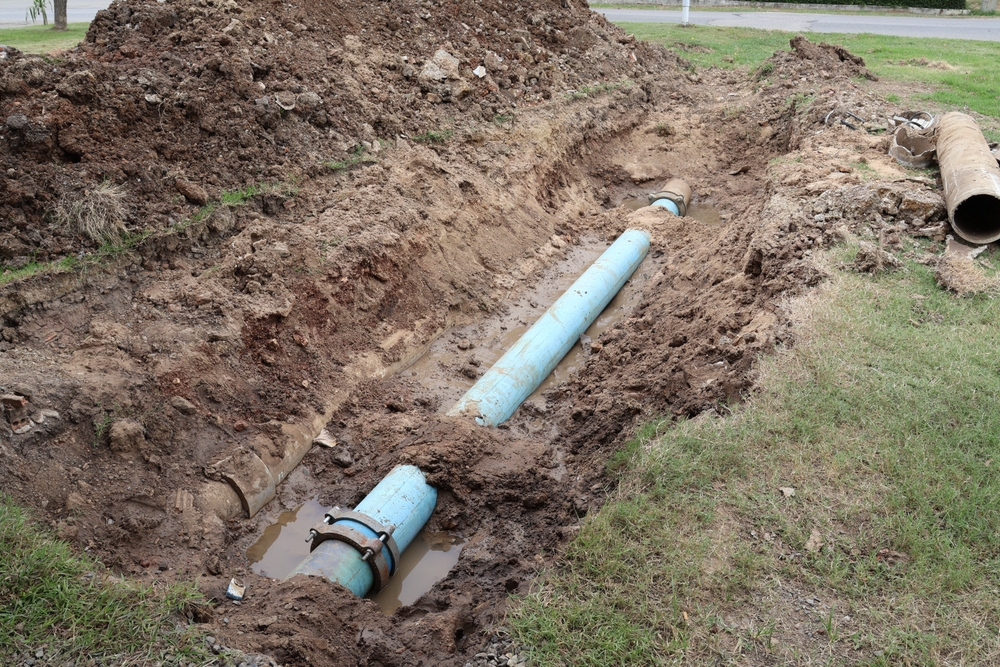

When planning and executing underground utility projects, soil type plays a critical role in determining feasibility, cost, and safety. In Dalton, a region known for its diverse geological characteristics, understanding soil composition and behavior is essential for engineers, contractors, and urban planners. This article delves into how Dalton’s unique soil types influence underground utility projects, providing insights into challenges and solutions.
Geological Overview of Dalton’s Soil
Dalton’s soil landscape is a mosaic of clay, loam, sand, and rocky substrates. This diversity stems from its geographical location, weather patterns, and historical geological processes. Each soil type presents distinct characteristics that impact underground construction.
Key Soil Types in Dalton
- Clay Soils
- High plasticity and low permeability.
- Prone to expansion and contraction with moisture changes.
- Common in low-lying areas.
- Sandy Soils
- Loose structure with high permeability.
- Susceptible to erosion and instability.
- Found near riverbanks and coastal zones.
- Loamy Soils
- A balanced mixture of sand, silt, and clay.
- Fertile and moderately stable.
- Common in agricultural zones.
- Rocky Substrates
- Dense and challenging to excavate.
- Provide stable foundations but require specialized equipment.
- Found in hilly and mountainous areas.
Challenges of Dalton’s Soil Types for Underground Utilities
Understanding the limitations and risks associated with Dalton’s soils is crucial for successful underground utility projects. Here’s how specific soil types pose challenges:
Clay Soils
Clay soils’ high water retention capacity leads to issues such as:
- Waterlogging: Excess moisture can saturate trenches, making excavation difficult.
- Shrink-Swell Potential: Fluctuations in moisture levels can cause soil movement, damaging pipelines and conduits.
- Increased Load Pressure: Wet clay can exert additional pressure on buried structures, increasing the risk of collapse.
Sandy Soils
While sandy soils drain well, they are prone to:
- Erosion: Loose particles can be washed away during heavy rains, destabilizing trenches.
- Trench Collapse: The lack of cohesive strength makes excavation walls prone to caving in.
- High Permeability: Rapid water infiltration can lead to increased pumping costs during construction.
Loamy Soils
Loamy soils’ balanced composition is advantageous but may still present challenges like:
- Moderate Compaction Risk: Improper handling during backfill can reduce soil porosity, affecting drainage.
- Variable Stability: Loamy soils with higher clay content may behave unpredictably under load.
Rocky Substrates
Rocky terrains are perhaps the most difficult for utility projects due to:
- Excavation Challenges: Cutting through rock demands specialized machinery and increases labor costs.
- Vibration Risks: Vibrations from heavy equipment can affect nearby structures.
- Limited Flexibility: Adjusting utility routes is harder in rocky areas, requiring precise planning.
Engineering Solutions for Dalton’s Soil Challenges
Addressing the unique soil conditions in Dalton necessitates innovative engineering strategies. Below are solutions tailored to specific challenges:
Clay Soils
- Drainage Systems: Installing temporary or permanent drainage systems can mitigate waterlogging.
- Flexible Materials: Using pipes and conduits that can accommodate slight movements helps reduce damage from shrink-swell cycles.
- Soil Stabilization: Techniques like lime stabilization can improve the soil’s load-bearing capacity.
Sandy Soils
- Trench Support Systems: Utilizing shoring and shielding equipment prevents trench collapse.
- Erosion Control: Applying geotextiles or erosion mats helps stabilize soil during and after construction.
- Grouting: Injecting cementitious materials into sandy soils can enhance stability.
Loamy Soils
- Compaction Testing: Ensuring proper compaction during backfill prevents drainage issues.
- Flexible Utility Design: Accounting for minor soil shifts with flexible joints and expansion allowances in pipes.
- Vegetative Reinforcement: Planting cover crops or grass can stabilize surrounding areas.
Rocky Substrates
- Precision Blasting: Controlled blasting techniques can break up rock without compromising nearby structures.
- Directional Drilling: Horizontal directional drilling minimizes disruption to the rocky landscape.
- High-Strength Materials: Using reinforced pipes and conduits ensures durability in rocky environments.
Environmental and Economic Considerations
Beyond engineering, Dalton’s soil impacts the environment and economy of utility projects. Planners must balance these factors for sustainable development.
Environmental Impact
- Soil Disruption: Excavation can disturb ecosystems and cause erosion.
- Water Table Effects: Altering soil drainage patterns can impact groundwater levels.
- Waste Management: Handling excess soil and debris responsibly minimizes environmental damage.
Economic Implications
- Cost Variability: Soil type significantly influences excavation costs, material selection, and project timelines.
- Long-Term Maintenance: Projects designed with soil characteristics in mind often have lower repair and maintenance costs.
- Community Impact: Delays and overruns can disrupt local economies and affect public perception.
Best Practices for Underground Utility Projects in Dalton
To optimize success in Dalton’s complex soil environment, stakeholders should adhere to the following best practices:
- Comprehensive Soil Testing: Conduct detailed geotechnical investigations before beginning any project.
- Adaptive Design: Incorporate flexibility in utility designs to account for soil behavior.
- Stakeholder Collaboration: Involve local authorities, engineers, and environmental experts in planning and execution.
- Regular Monitoring: Post-installation monitoring ensures early detection and resolution of issues.
Conclusion
Dalton’s diverse soil types present both challenges and opportunities for underground utility projects. By understanding the unique characteristics of clay, sand, loam, and rocky substrates, engineers and planners can implement tailored solutions that enhance efficiency and sustainability. With proper preparation and innovative approaches, Dalton’s underground infrastructure can thrive, supporting its growing community and economy.
Need an Underground Pipe Company in Dalton, GA?
Established in 2021, Grade-1 Underground is your number-one go-to company for your underground pipe needs. From Water mains to sewer lines, we have you covered. Our team also provides site work such as excavation, grading, land clearing, and much more! For any questions, please give us a call today!
